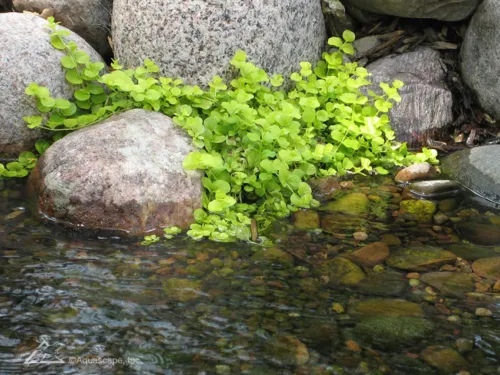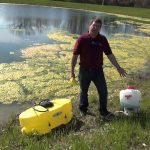Pond water is a natural resource that can provide numerous benefits to plants in your garden or landscape. Many gardeners wonder if using pond water to irrigate their plants is a good idea. In this article, we will explore the advantages and potential drawbacks of using pond water for plants.

Credit: www.waterfeaturedesign.co.uk
Advantages of Using Pond Water for Plants
There are several benefits to using pond water for your plants:
- Nutrient-Rich: Pond water contains natural nutrients that can help nourish plants, promoting healthy growth and vibrant blooms.
- Cost-Effective: Using pond water for irrigation can help you save money on your water bill, especially if you have a large garden or landscape to maintain.
- Environmentally Friendly: By utilizing pond water, you are reducing the demand for treated tap water, which can be beneficial for the environment.
- Mineral Content: Pond water often contains beneficial minerals that can improve soil quality and enhance plant growth.
- Natural Pest Control: Some components in pond water can act as a natural pest deterrent, protecting your plants from harmful insects.
Potential Drawbacks of Using Pond Water for Plants
While pond water can offer several advantages, there are also some potential drawbacks to consider:
- Algae Growth: Pond water may contain algae that can compete with plants for nutrients and sunlight, potentially harming plant growth.
- High pH Levels: Some ponds may have high pH levels, which can negatively affect certain plants that prefer more acidic soil conditions.
- Pathogens: There is a risk of pond water containing harmful pathogens or bacteria that could infect plants, especially edible crops.
- Heavy Metals: If the pond water has been contaminated with heavy metals, it can be harmful to plants and may lead to toxicity issues.

Credit: www.aquascapeinc.com
Tips for Using Pond Water Effectively
If you decide to use pond water for your plants, here are some tips to ensure its effectiveness:
- Filter the Water: Use a filtration system to remove debris, algae, and other contaminants from the pond water before using it on your plants.
- Test the pH: Check the pH levels of the pond water and adjust if necessary to ensure it is suitable for the plants you are growing.
- Monitor for Signs of Algae: Keep an eye out for algae growth in the pond water and take steps to control it to prevent it from harming your plants.
- Rotate Water Sources: If you have concerns about the quality of your pond water, consider rotating between pond water and other water sources to minimize risks.
Conclusion
In conclusion, pond water can be a beneficial resource for plants, providing natural nutrients and cost savings. However, it is essential to be mindful of potential drawbacks such as algae growth, high pH levels, and contaminants. By following the tips mentioned above and monitoring the quality of the pond water, you can effectively use it to promote healthy plant growth in your garden or landscape.




